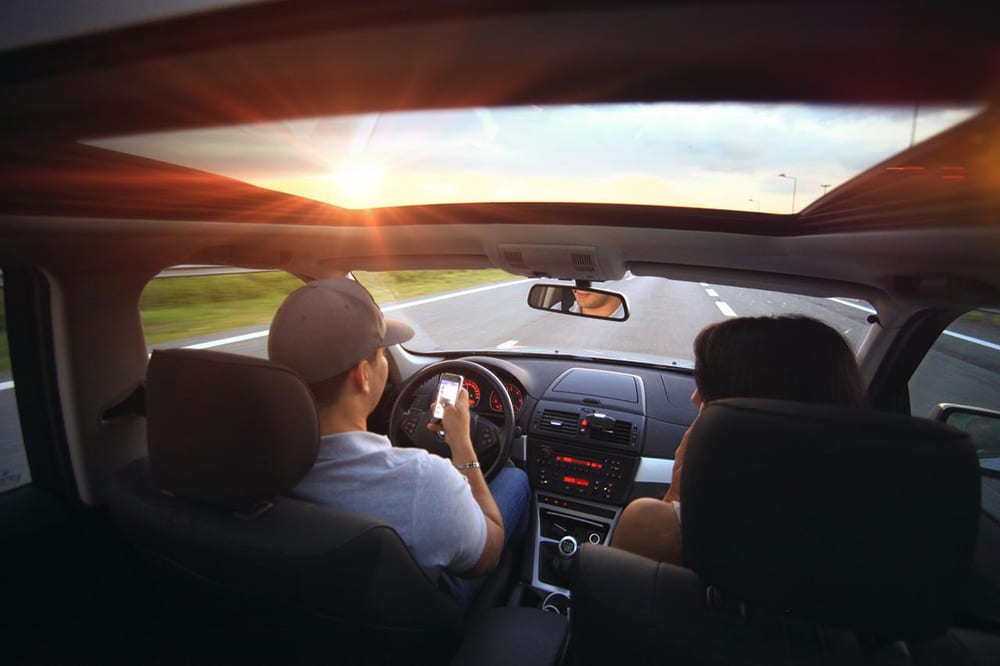Top 5 Summer Driving Safety Tips

As the weather turns warm and kids are off school for the summer, families are often eager to escape their homes and visit somewhere new. The summer holiday vacation is practically a rite of passage in America. In 2021, 82% of Americans traveled over the summer. Of those, 73% went on a road trip.
The lawyers at Pittman Roberts & Welsh, PLLC know that road trips can create memories that last a lifetime, but they also know that they can be dangerous. We want everyone in Mississippi to stay safe this summer, so we’ve compiled our top five summer driving safety tips.
Inspect Your Vehicle
You should always perform a thorough inspection of your vehicle before you set off on any type of road trip. Your car should be in good condition, with no obvious hazards or problems. The last thing you want is for your vehicle to break down on the side of the road or in a town that is still several hours or hundreds of miles away from your destination. Check all the following:
- Coolant System. Your pressure caps, hoses, belts, and radiator should all appear to be in good shape and free from any obvious cracks or wear. Make sure that nothing is leaking. Check your coolant levels before you leave and bring along extra coolant and oil if you have room for it.
- Air-Conditioning System. The summer months are hot in Mississippi, with high temperatures reaching the mid to upper 90s. You need to be sure that you can rely on your vehicle’s air-conditioning unit to keep you cool and comfortable so that you and your passengers do not overheat. Symptoms of overheating include headaches, dizziness, fatigue, muscle cramps, and a weak, rapid pulse among other things.
- Tires. You want to be sure that your tires are properly aligned, fully inflated, and have a good tread. An auto mechanic will have to help you realign your tires, but you can check the inflation and treads on your own. Refer to your owner’s manual or the information printed on the inside of the driver’s door frame to find the recommended inflation pressure. A little bit of wear and tear on your treads is fine but treads less than 2/32 of an inch are unsafe.
- Wiper Blades. Summer storms can be long and intense. You do not want to be caught on the interstate, a two-lane highway, or in an unfamiliar area with windshield wipers that cannot adequately clear your view of accumulating water. Replace worn-out wiper blades before road trips to avoid being caught in a dangerous situation.
- Fluid Levels. Make sure that the reservoirs for brake, automatic transmission, power steering, and windshield washer fluid are full before you hit the road. If it is nearly time for your oil to be changed, discuss with your auto mechanic whether it would be beneficial to do it prior to a road trip.
- Floor Mats. All it takes is one improperly installed or sized floor mat to interfere with your ability to brake or accelerate. Check your vehicle manufacturer’s recommendations for installing mats safely and properly and use retention clips to stop mats from sliding forward and underneath the pedals.
Do not attempt to complete this checklist by yourself if you are unfamiliar with certain aspects of car maintenance. While learning more about how to care for your car is always helpful, you do not want to make a mistake or overlook a hazard before you set out on a road trip. Instead, take your vehicle to a trusted auto shop where they can evaluate it and perform any necessary maintenance.
Slow Down
Getting to your destination as quickly as possible tends to be one of the top priorities on road trips. Unfortunately, speeding toward your vacation spot can delay your arrival.
Data from the Insurance Institute for Highway Safety (IIHS) shows that speed is a common factor in car accidents, and the faster you are driving, the more likely it is that a collision will be fatal.
Driving at higher and higher speeds is also associated with increased wear and tear on the transmission, all the moving parts in your vehicle’s engine, and the tires. You’ll also use more gas per mile when you speed, which might not hurt your car, but it could hurt your wallet.
Plan Your Stops Ahead of Time
While you might not be able to account for every bathroom or snack break, you can certainly plot out potential stops along the way. Using your favorite map or global positioning system (GPS) app, search for things like gas stations, rest stops, and restaurants along the way. If you notice a long stretch of your trip that is otherwise absent of safe places to stop, plan to fill up your gas tank and purchase snacks and water beforehand.
Wear Sunglasses
The summer sun is strong, and human eyes are sensitive. Wearing sunglasses when you are behind the wheel for a summer road trip is a smart and easy way to protect your eyes from potential ultraviolet (UV) damage. If you wear prescription glasses, consider purchasing a pair of prescription sunglasses or investing in transition lenses that automatically adjust depending on the light.
Sunglasses do more than just protect your eyes. Sun glare is a dangerous phenomenon that can create the sensation of temporary blindness. It can occur when the sun’s strong rays reflect off other vehicles’ windshields or mirrors, road signs, building windows, and other smooth, reflective surfaces. Wearing sunglasses limits the impact of sun glare and, combined with slowing down, can help you safely navigate your vehicle better.
Pack an Emergency Kit
No matter how safely you drive or how much time and preparation you put into making sure your car is roadworthy, accidents can happen. Whether you are involved in an accident in a remote location, or your car experiences an unexpected breakdown, you might need supplies to hold you over until help can arrive.
At Pittman Roberts & Welsh, PLLC, we suggest you pack an emergency kit alongside your luggage on every road trip you take. Here are a few examples of items that every fully-stocked emergency kit should have:
- A flashlight with extra batteries
- Jumper cables
- Towels, blankets, and extra clothes
- Water bottles
- Non-perishable food
- Extra cell phone charger and battery bank
- A first aid kit
- A small tool kit, including wrenches and screwdrivers
You can even keep this kit in your vehicle year-round in case of emergencies. Just be sure to check the expiration date on any foods and replace them as necessary.
Life After a Summer Car Accident
Even if you follow these driving safety tips, you could still be involved in a collision.
The time, energy, and finances it takes to fully recover from a car accident can be overwhelming. At Pittman Roberts & Welsh, PLLC, our Jackson car crash attorneys work tirelessly to ensure that our clients receive every bit of compensation they deserve.
Local insurance companies know that we mean business, and we make sure that the injury victims we work with understand every step of the process. If you are ready to pursue compensation after an accident caused by negligence for your medical bills, lost wages, vehicle repairs, or more, contact us today to schedule your free consultation.







